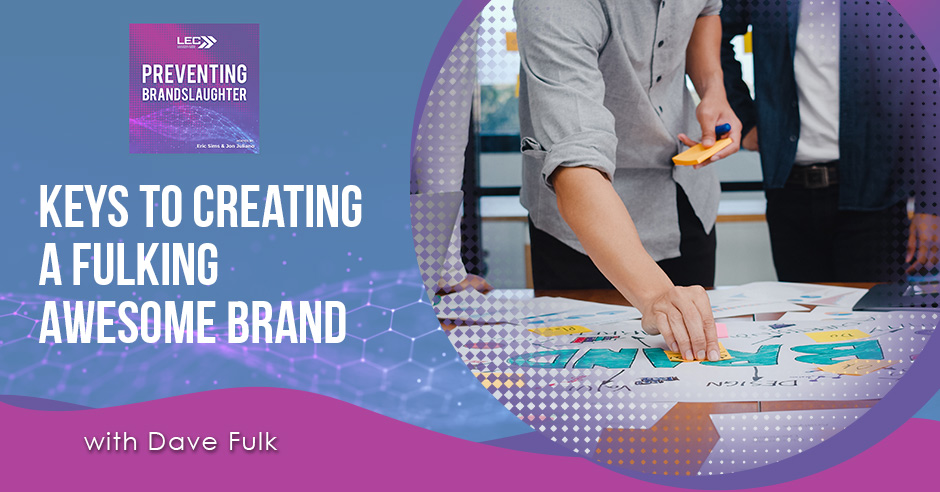
You can build your brand to unbelievable heights, but have you protected it? You may wake up one day from the highest highs to the lowest lows just because someone posted one bad review. This episode’s guest is a serial entrepreneur who has been helping brands protect themselves. We have Dave Fulk, the Owner and CEO of Reputation Rhino, on the show to share with us how to not only create an awesome brand but a fulking great one—growth and reputation intact. Dave shares how they do it, spilling their secret sauce to keeping brands safe in this digital society. He then dives deep into online reputation management and mitigating negative traffic. He breaks down some of the mistakes many brands make and how to overcome them. In this digital age, either you are controlling the narrative or Google is. Learn how to proactively protect your brand by tuning in to this great conversation.
—
Watch the episode here
Listen to the podcast here
Keys To Creating A Fulking Awesome Brand With Dave Fulk
In this episode, we’re super excited to have Dave Fulk on the show. Dave is a serial entrepreneur and the Owner and CEO of Reputation Rhino, an online reputation company that is blowing the doors off the industry and changing the way people view online content and reputation management. Stay tuned. Here’s Dave.
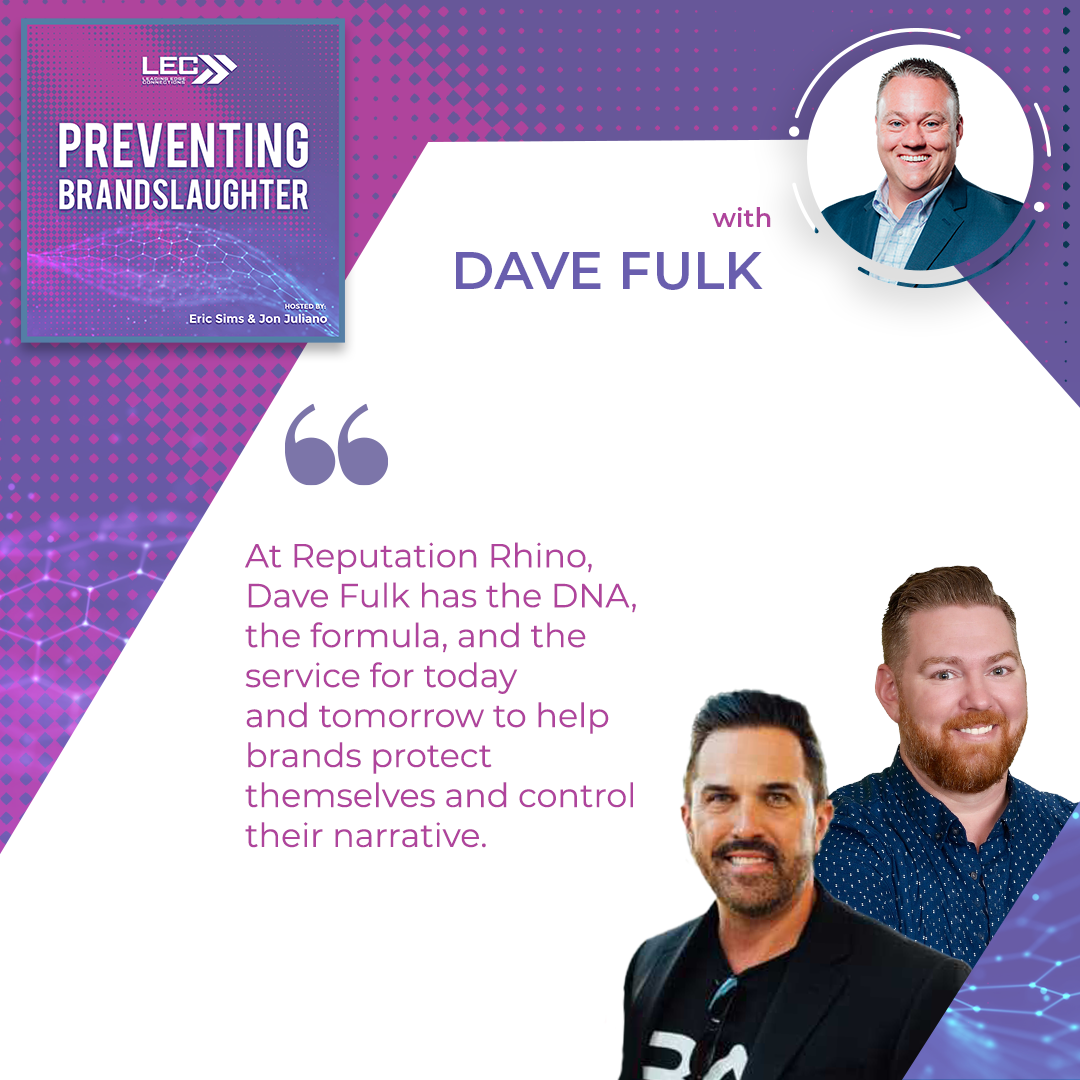
Welcome to the show. We have Dave Fulk with Reputation Rhino with us. Dave, thanks for joining us.
Eric, thanks for having me.
This is going to be a great episode. Jon, you know I’ve known Dave for several years. We’re somewhat neighbors. We’re pretty close by. I’ve seen him. He’s a serial entrepreneur so it’s not like he has one business. When I started thinking about what we were doing with brandslaughter and what brandslaughter is all about, it’s this thing where we feel like it’s the number one silent killer of businesses out there. It’s impacting brands.
A lot of times, the only reason you find out is when it’s too late and you’ve done something with your talent, techniques or technology that all of a sudden is destroying your brand. Dave has started a hyper-successful company called Reputation Rhino. From my understanding, its sole purpose is to help brands protect themselves, that valuable asset and intellectual property called their brand. Dave, we’re going to get into that but before we do that, I wanted you to back up and maybe share a little bit about who you are and where you’re from.
I’m a serial entrepreneur. I’m a seasoned executive, investor, entrepreneur and CEO. My superpowers are being hyper-focused on creating the right solutions and building dream teams to get the job done. One of the things I’ve specialized in over the last few years is acquiring existing cashflow in businesses. I look at future trends of what’s coming in areas that a lot of people miss. One of those areas is brand and online reputation management. I didn’t start the company.
I acquired the company because of that. We acquired Reputation Rhino in 2021 but we saw where it was going. I’m a skilled operator in a lot of different areas but because of the need for a personal brand and the conversation that you guys are having right here on the show is the reason I stepped in. I’m involved in multiple businesses but I stepped in this one as a CEO because it was a big opportunity for us.
You got some other partners in the business with some other people connected to the business that some people may have heard of. I don’t know if you want to share about who’s working with you on this thing. It’s cool how you’ve been able to wrangle in on this to build something pretty exciting.
We’re all about the animals over here. We got sharks and rhinos. One of the partners in the company is the original shark from Shark Tank, Kevin Harrington. Little unknown facts, a few years ago, he was involved in a deal and woke up and found himself on the front page of TMZ in a lawsuit. They’ve since taken care of that and settled it. You’ve talked about a guy who was helping people to protect their brand. We’re talking about a guy who had 3 to 4 decades of building a brand and having a massive amount of success. Everybody’s heard of the products that he invented. He freaking invented the infomercial. We all know about that.
This one thing that didn’t involve him but he was named in the lawsuit, all of a sudden, his reputation is being tarnished. He has guys pulling out of deals. When he’s broke, he was at an event where he was supposed to speak on stage and they pulled him from the speaker lineup because of it. He ended up working with our company and we got it all fixed for him. It’s buried and it doesn’t exist. We’ve reestablished him as the amazing entrepreneur that he is and the reputation that he should have. That goes to show that either you are controlling the narrative or Google is.
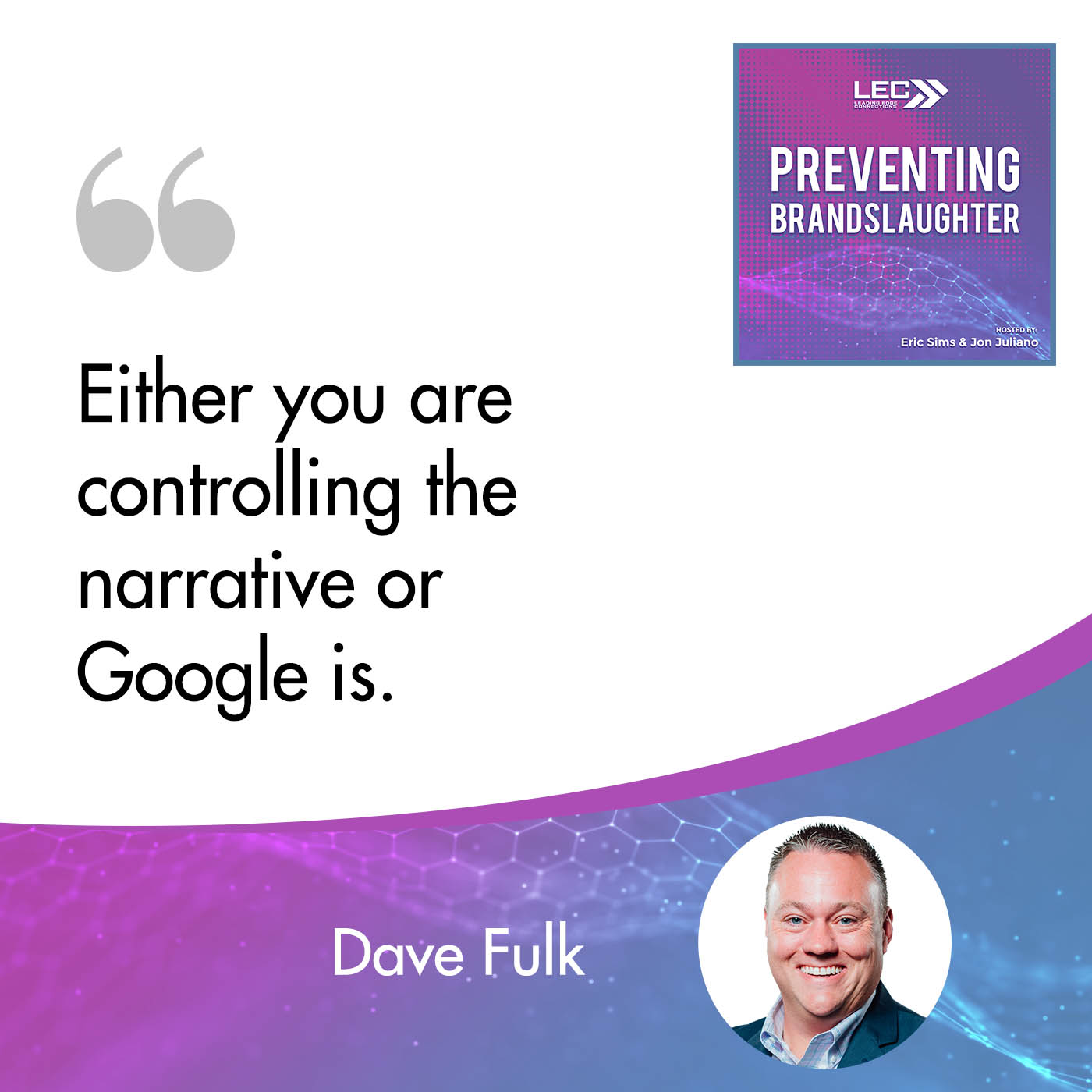
We all know that’s the dangerous piece. When you look at any of the platforms that are out there, in a lot of ways, it’s good. People are able to have a voice and voice concerns on social media or on other platforms that are out there and give reviews. That’s all positive. However, when you’re the victim of an attack of a story that’s not true or of someone maliciously going after you, being able to defend yourself adequately and accurately becomes of the utmost importance.
Jon and I have experienced this even with LEC. We get a couple of bad reviews and all of a sudden, somebody brings it up. You’re like, “That’s not even true. There’s nothing about this that was even true.” You find yourself in an important meeting or an event and that’s when it gets thrown in your face because there was nothing proactively controlling the narrative on that. Maybe share a little bit with us about what your approach is. How do you guys do this? If you can share a little bit of the secret sauce, that’s great. If you can’t, I understand.
I’m going to back up a little bit because there are some people that maybe this hasn’t happened to them yet and they’ve got to understand. They’re like, “That’ll never happen to me. Kevin Harrington, I’ll never be there.” People have to understand the context of how people are viewing businesses and individuals. There are 5.6 billion searches on Google per day. That’s 63,000 every second. It’s insane. In the last couple of years, there’s been a 617 increase in the number of people that are going online to Google and Facebook to leave reviews.
People left a bad review. It’s online so they believe it, whether it’s true or not. Ninety-five percent of people believe reviews online as much as a recommendation from a trusted family member. If my mom told me to go eat at this restaurant because it’s good, I’m not going to believe her as much as I read a review online. That’s the scary part. Seventy-eight percent of people look up information online before they decide whom they want to work with, whether it’s a business or an individual.
Here’s the scarier and craziest part, Eric. Seventy-four percent of people have already decided who they’re most likely going to do business with based on the information that they find about somebody online or the information they didn’t find about somebody online. As a business owner, call centers are always speed to lead and generate leads. What people are finding out about you online affects your ability to even generate leads. The whole conversation is changing. Statistics and facts like that are one of the main reasons we look to acquire Repetition Rhino because that’s how the consumers are. Everything is online. I like to say the handshake has been replaced by the Google search.
I grew up in the Midwest. I was a Midwest boy with Midwest values that you shook somebody’s hand and looked them in the eye. That doesn’t exist anymore. We’ve become a digital society with instant gratification. We want everything now and find them online. We wanted it at our fingertips and then you start looking at how AI is changing and making that possible. How we consume information is different. In Reputation Rhino, people come to us in three areas. 1) They’re looking to build a brand. They’re a ghost. They don’t have anything out there about them online, which is as bad as almost having a negative review.
2) There’s somebody like the Kevin story that I talked about. He has a brand but he wants to protect it. 3) There was some negative issue, press, video or something like that. Somebody did something stupid, made a mistake and wants to work past that. We worked to remove or suppress that and then rebuild them as an individual.
We work with both individuals and brands or companies. One of the biggest things is online reputation management has been used for years by hedge fund guys and large Fortune 500 companies. It’s part of their marketing budget but it’s never been very accessible for the everyday professional, like the doctors, the lawyers, the small to medium businesses, the entrepreneurs and stuff like that.
That’s where we specialize. Don’t get me wrong. We have plenty of corporations that make $4 billion or $5 billion a year that are clients of ours but we also have the ability to do work for that everyday entrepreneur, that growing small to medium business or professional, like the doctor, lawyer or orthodontist. The stay-at-home mom wants to know who they’re taking their kid to get their braces on.
I’m thinking through this age of online reputation. To your point, it’s like, “Only the big boys had access to some of this online stuff.” There was the part where you had to have this whole approach of like, “I’m going to try to build a brand. That was difficult enough as it was.” When you had fires, you had to go out and hire a PR firm.
You may still want to get a PR person but it sounds like this becomes the core competency that you leverage to your point in building and protecting so that if you do have something, you’re not having to hunt something down and go do 900 newspaper releases or whatever it is as you did in the old days. You can control the narrative globally. Can you talk through that a little bit? Am I off base there?
You’re on base because even though online reputation management has been around for years, it’s still a very new term to a lot of people. A lot of people will go, “What is that? What do you mean? You’re a PR firm.” “Not exactly.” Here’s the most basic element that I can explain. Marketing is what you say about yourself. Branding is what somebody says about you after you’ve left the room. We help you create a brand. PR is marketing.
Marketing is what you say about yourself. Branding is what somebody says about you after you've left the room. Share on XYou’re standing on the rooftop with a megaphone screaming out whatever they want to hear. It’s one instance. They place it online. It goes away and eventually dies. It doesn’t help control the narrative. It controls the narrative in a Polaroid snapshot of time. Online reputation management is a combination of five things. That is PR, content management, digital marketing, SEO, backlinking and legal. It’s those five things combined in certain elements that create what actual online reputation management is. PR is part of a strategy but it’s only one part of the strategy online.
You’ve touched a lot of businesses. You’ve been involved with many different entrepreneurs over the years. The most direct way of asking the question is are you adding clean water to the dirty water or is there more of a methodology to somebody who has something blow up on TMZ? What’s your strategy to try to mitigate that downwind negative traffic?
Jon, I’m going to give you the legal definition of what it takes for someone to get. It depends on what the scenario is. How bad is it? Is it ongoing? Was it a one-time thing? Is it going to be something around for five years? They are truly complete dirtbags. We don’t ever want to work with them anyway. What we do sometimes is a magnifying glass. It’s going to magnify the individual. If that individual is looking to retain our services to continue lying, cheating and stealing people, they’re probably not a good fit for us anyway.
We take a stance. We don’t want to help you but if somebody truly had a mistake in their life, had an issue or got caught up in something false or the narrative was off, we’re going to help you come in and try and remove as much of that. That’s why the legal aspect is so important and having the lawyer address those things. We’re going to remove what’s removable from online either through our works or our legal works and then the remaining stuff that’s there, we’re going to try and suppress. Google has an infinite number of pages but most people don’t go past page one. There are 10 things that pop up on page 1, 10 on page 2 and 10 on page 3.
Our goal is to get that negative stuff suppressed and pushed so far down. Google is still there. Somebody is going to have to search and it’s hard to find it. We want to control the narrative of who you are now. Highlight your personal and professional accomplishments online. We want to control those ten search elements when somebody goes into that search bar and types your name or your company name. In the ten things that pop up, we want to make sure that those are positive and highlight you in a professional positive way.
I’m under the flag of the preventing brandslaughter piece. We know companies are doing stuff that they don’t know they’re screwing up their brand or maybe they do know and they don’t care. Jon and I prefer to think about most of this stuff. Most people open a company and they don’t do things on purpose to ruin their brand. When you’re looking at what’s being done and what you guys are coming across, are there top three boneheaded mistakes or things you’re seeing like, “We see this all day long and these are the ones protecting your brand?”
The number one thing is not being online, thinking that they can continue to operate in a world where they don’t have to operate online or share their story online. It’s not true for your customers or when you’re trying to hire people. Your ability to hire and retain employees is also based on what they find out about you online and the whole way of business operates. The number one biggest mistake is not being online. Number two is the reviews. Not taking reviews seriously, not focused on getting positive reviews that are out there and not putting in the time and effort.
If you have a good business and you provide a good service or you have a good product, they should want to leave you a review. All you have to do a lot of the time is ask. A big mistake in brandslaughter is people simply not going, “Eric, would you leave me a five-star Google review?” 1) Not being online. People are online. You have to be where the people are. 2) Not taking reviews seriously. 3) Being an ostrich and burying your head in the sand thinking, “This is not important. This never going to happen to me.” Also, not having any crisis management plan.
If you have a good business and provide a good service or product, people should want to leave you a review. All you have to do a lot of the time is ask. Share on XI’ve been a business owner for a long time. I’ve been involved in a lot of businesses. For every business I’ve ever been involved in and I can almost unequivocally say this about you, Eric. I don’t know but I could say that there has always been a moment where you went, “Oh shit.” Something unexpected happened and all of a sudden, you’re having to deal with it. People don’t factor in that oh-shit moment when they think about how important their brand is. 1) An ostrich not taking it seriously enough to have a crisis management plan in place for when the oh-shit happens. 2) Ignoring reviews. 3) Not being irrelevant online. If you’re not online, you’re irrelevant.
It’s hard to imagine in the world that that’s still happening. I know it is and so does Jon. We come across it where people are still either not there or might as well not be there with what they’ve got there. It’s so minimal. It’s negatively impacting your brand because anybody that’s going to do anything with anybody does a search on them. If you pop up and you look like you don’t exist, there are two questions. It’s either what you have I don’t want or it’s not real. Those are the two summaries you come to. “This looks bullshit or this looks bullshit.”
People love our opinions. We love to judge and our opinions. We don’t like to change our minds. That is a fact. You don’t get a second chance to make a first impression. More often than not, your first impression is online. 68% of people believe their first impressions to be accurate when 76% of the time, they aren’t. Sixty-five percent of first impressions are made by what people see. What do they see when they Google you? That’s the scariest question I can ask. I’m a data nerd.
There was a Cornell University study that was done and they took two groups of people in. Group one sat in a room and said, “We want to show you pictures of people. We want your instantaneous impression of what type of person you think this person is.” Group B was the people that were in the photos. They went to these different people and had them make different faces like smiling, making a scowl and looking angry or happy. They took different pictures and then they had no idea there were two groups. What they did is flip the picture on for one second and turn it off. The person who saw that picture had to give an instant impression of what they thought the person was like in real life.
The happy people had good impressions. The mad people are looking like not good people or nice. Six months later, they invite both groups to a mixer party in person. Granted, they’ve never met before. This is the first time they met. They spent some time together. They networked with people. They pulled the group in batches and asked what their impressions are of the people they met. After meeting these people in person, they still had the same impression that they did when they saw a picture of them for 1 second 6 months earlier.
It sticks. It’s hard to overcome. One of the things that is the most powerful is the fact of controlling the narrative. Anytime Jon or anybody else that I’m working with look at business stuff, there’s always this aspect of what can we control and what can we not control. Anytime you’re sitting in a position where you’re 100% responsive and reactive, it’s a dangerous place to be.
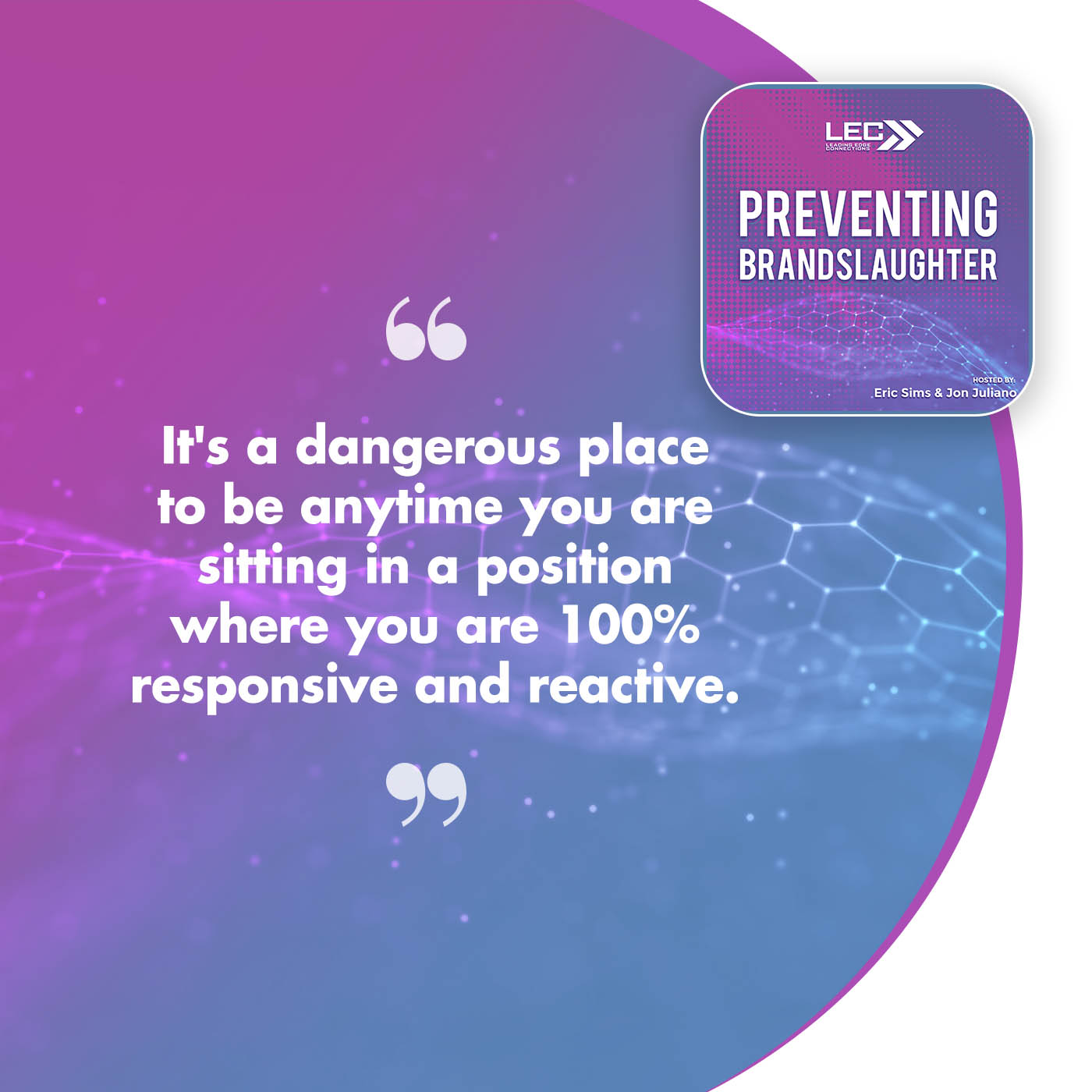
I’ve put myself where the only action I’m going to take is if somebody punches me in the face then I can do whatever at that point in time. What you’re talking about is being able to proactively control. That’s important for business leaders to let that terminology sink in a little bit. Control the narrative and proactively build part of your brand.
It’s another day in a lifetime. A long time ago, before I jumped into my entrepreneurial journey, I was a police officer. I had an attorney one time tell me, “If you’re defending, you’re losing. If you’re explaining, you’re losing.” If you’re in a reactive state, we’re having to explain what this thing was or defend yourself from this thing, you’re already losing. You’ve already lost. You’ve heard this one million times. People will buy from you when they know, like and trust you. When this happens, you become influential.
Remember what I said. Seventy-four percent of people have already decided who they’re going to do business with based on the information that they found about them online. The question then is, “How will people know, like and trust me if they never meet or speak with me?” That goes back to the number one mistake. You have to go where the people are. If people are online, you have to be online. If you’re not online, you’re irrelevant.
You have to go where the people are. If people are online, you have to be online. If you're not online, you're irrelevant. Share on XI can’t imagine we’ve come across this a number of different times. We’re in multiple industries as you well know with the people we serve. When I think of controlling the narrative and protecting the brand, it’s a matter of PR and branding. Going back to the point you made, I’m able to proactively address problems. There always are the oh-shit moments. When I have an oh-shit moment, am I there waiting to be responsive to the oh-shit moment or am I proactively working with my brand reputation to deal with the oh-shit moment? Those are two different things.
If you’ve proactively done it and you’ve built a barrier of protection around it, maybe when that oh-shit moment happens, it’s not even a blip on the radar. For some people, it may shoot right to the top and it’s the number one thing that shows up on Google and it lives there. It defines who you are. If you’ve proactively done this the right way and you’ve worked with a professional, somebody like us or you have your team but you spend the time and the effort to do it appropriately, that oh-shit moment may not even be a blip on the radar. It may not even be something.
Dave, you’ve worked with multiple entrepreneurs, brands and businesses, you don’t have to give names and specifics. Out of the years of experience that you have, what is one of the most egregious forms of brandslaughter that you’ve witnessed? What did you do to step in, help and intervene in that?
Some of this stuff could get pretty nasty. We’re an international company so we have clients all over the world and there was a company that we were working with. He was very successful. He had multiple companies, owned soccer clubs in Europe and huge multibillion-dollar corporation. He was also involved in politics. When things get political, it’s nasty. Some of the stories that would come out would be fabricated stories on both sides. How they would try and protect it is insane.
Some of the brandslaughter stuff is not controlling or addressing the narrative. I can’t get into too many specifics of what’s protecting some of our clients but it’s expecting something to go away. Time heals all wounds unless it’s online. If it’s online, it’s there forever. It goes back to Cornell University. Unless you do something to proactively make it go away, it’s not going to.
Time heals all wounds unless it's online. If it's online, it's there forever. Share on XWhen you’re looking at Reputation Rhino, where you guys are and then you take a minute and look forward, what are you guys trying to accomplish over the next years? What are those next iterations look like for you?
Continuing to reach down a little bit more. What I mean by that is reputation management used to be for the elites like the Fortune 100 and Fortune 500 companies. Now, it’s becoming a more common day. We want to help online reputation management be more of a normal conversation that people have. You got to think how far down can it go. When I say down, how far down the rung of the ladder? Where can we make an impact to help people?
Down to high school athletes who are trying to get a college scholarship, how can we help high school athletes look the best they can from these college recruiters to be able to help them secure a position for a scholarship or even admission into a college? Building your personal brand, if you’ve watched it at all, a few years ago was almost not a thing.
The Kardashians came along and everybody needs a personal brand. It’s true. It’s who we are as a society. We’re in a society where you’re got nothing but influencers. You have people that had no relative skill and I don’t want to diminish influencers. They didn’t provide a service or knowledge to a company for money in exchange. They had some influential abilities online with creative videos. People are following them.
How we react and look at things as a society, having a personal brand is more important now more than ever. I have my brand outside of the company because I have to. One of the first things people do is Google me. They’ll look at the company that I’m involved with. Not having a personal brand is terrible. We’re helping people get a personal brand built and continuing to make it an accommodated practice where parents of high school students can afford it.
We’re spending a lot of money on technology for rep rank and audits where somebody can go in. Think of a credit score. You put in your information and get your credit score back. It tells you if you’re doing good or bad. If you go in with our algorithms, it gives you a rank on how your online reputation is. It stacks up and what you can do to fix it. You have an audit where it goes and spits out what you need to do to address it. You can do it individually or hire a company like us to take care of it for you.
That’s a pretty interesting point that you are the brand type of thing that’s evolved over the years. It got me thinking about my daughter’s graduating college. Your son is getting ready to head in. I watch him post his stuff on soccer and the stuff he’s doing. He’s building his brand and doing his thing. You’re spot on. Think about it. Colleges, even some of the private schools and high schools, club sports, societies and jobs, people go to your social media and google you to see what’s going on with you.
They don’t take your resume or application anymore. They go do those things and your online reputation becomes “who you are.” All of a sudden, there’s something you did or happened or somebody said about you a few years ago. If you’re not having any brand management going on online, you may apply for a college or your kid may apply for a college and get turned down because of something that was online about them.
I see there’s a big value in that. Ray and I were talking at one point in time about some branding stuff. Ray had a cool point, especially for guys. Most people in the world don’t join one company and work there for 65 years anymore and then leave. That almost never happens anymore. Most people are 2, 3 or 5 years, start their business and do this and that. We live in that economy.
The one thing that follows you everywhere you go, no matter what company you’re with, own or start, to your point, is Dave Fulk and that brand. You can either build an asset that you are picking up and moving, leveraging or liability each time and it creates an uphill battle. To the point that you guys are moving, what I’m hearing you saying is you guys are seeing that become more prevalent and important on an individual basis, not just a corporate basis.
Out of necessity, yes. We talked a lot. This is primarily a business show. Most people probably that are reading are entrepreneurs. If we talk about this for a minute, that point that Ray makes is a freaking great one. It is awesome. It’s a great point because people think, “Reputation management is for Fortune 100 or Fortune 500 companies. It’s for entrepreneurs and business owners.” It’s no longer the case that a personal brand is only important to those people. It’s important for high school student, not even an athlete, who wants to go to college. It’s important for the college like your daughter or somebody who’s graduating college. They’re going to apply for all these jobs.
There are only so many jobs out there. There are not enough jobs to even fill the amount of college graduates that there are. Let’s say we have ten college graduates applying for the same job. How does that one person stand out? What does their personal brand say about them that the other nine don’t? You can work in corporate your whole life and be fine. That’s great for some people. They want to climb the corporate ladder or maybe they don’t want to stay at the same company but they always want to be an employee and that’s great. It’s so much more than your resume.
It’s, “Who is this individual? Who is this person?” That’s what your personal brand is. It tells the story of who you are, what you believe in, what are your core values and stuff like that. If you go to my website, I broke it down into four pillars of who I am. I’m a maverick, an investor, a CEO and a family man. I’m a husband and wife. Those are my four personas of who I am. People can get a better understanding of who Dave Fulk is and that’s what people want. They want more substance and authenticity to who somebody is.
Your personal brand tells the story of who you are, what you believe in, and what your core values are. Share on XThat’s his catchphrase. He’s Fulking awesome. I still text him that periodically or whenever we’re talking, I bring it up. I’m like a little kid that feels like you’re saying a bad word but you’re not. It’s such a great branding deal.
That’s funny. I use it all the time when I get on stage and I talk branding. I go, “There’s one Fulking speaker you’re going to remember from this whole event. You cannot forget who I am. It sticks.” When I go on PG-rated stages, it allows me to get a few wide-eye eyeballs. I’m not cussing but I am.
You mentioned getting on stage. We’ll probably get a little more personal too, if you don’t mind. There’s a big part of you that loves to live life. You’re a big personality. You got your four pillars but there’s a lot of stuff about you that you like to go out, meet people and do stuff. You’ve got something you were sharing with me about. You’re going to take your first run at standup comedy coming up. Maybe share with the audience a little bit. Why?
It’s one thing to get on stage and talk. That’s not easy. You do that all the time but it’s probably easier than it used to be for you because you’re like I am. Once you get up so much, it’s not a big deal. Standup comedy is a real science and art. It is not you get up and tell a knock-knock joke and then walk off stage. What made you want to do that?
One of the things that I’ve realized is you grow when you find yourself in uncomfortable and unfamiliar situations. I constantly try and put myself in situations where I’m uncomfortable. It comes back to the saying, “You got to be comfortable with being uncomfortable.” A good friend of mine, Steve Sims, wrote a book, Go For Stupid. He’s talking about doing something stupid. This was a go-for-stupid moment for me that is uncomfortable. I’ve never done standup comedy. I have no training in it whatsoever other than the short six weeks and a couple of lessons that I get with this guy before I go up on stage to do it.
You grow when you find yourself in uncomfortable and unfamiliar situations. Share on XIt’s going to be funny one way or the other. You’re going to laugh at my jokes or it’s going to be so bad that you’re not going to be able to laugh. Either way, whoever is in the audience, you’re going to get a laugh out of it. Let’s put some context on it. It’s not doing comedy in my driveway for the neighborhood. We’ve got the iconic Tampa Improv Theater booked out with 360 seats and is going to be full. I’m going to do my debut in front of a full crowd of different people. It’s going to be interesting. I’m looking forward to it and it’s going to be a lot of fun.
There is a star that would kill to get in front of 360 people. Dave is Fulking around and having a full house at his first debut. Maybe a new pillar goes on the website next. Father, husband and stand-up comedian. It’s cool that you’re trying something new. I wanted to bring it up. It’s neat to get outside that box. Jon, do you have something?
At the end of the day, what makes you tick? What’s your why?
My family is my huge why. I’ve been married for many years. It’s my beautiful wife Brandy. I’ve got three amazing kids. People are like, “What are your hobbies?” I’m like, “I have three kids. My hobbies are their hobbies.” They’re all in extracurriculars. I don’t have days off. I may work from 6:00 to 6:00 and put in twelve hours working. From 6:00 to 10:00, I’m driving around a few extracurriculars. One is going to soccer. One is going to dance. One is going to volleyball. It doesn’t matter. We’ve always got something going on every weekend.
That’s what makes me tick. I love life as Eric put it. I love to have fun. Years ago, I had a real transformative experience from a gratefulness journey. If you talk to a lot of different entrepreneurs and the power of positivity and being grateful, I love to do anything and have fun with it. If somebody asks what kind of day I’m having, I always respond, “It is the best day of my life.” I’m a one percenter. I want to make tomorrow 1% better than it was today.
I’m a big fan of Atomic Habits. That’s one of the core beliefs in that book. You said something happened that made you have that shift. Prior to that, were you still an optimistic, positive individual?
You talk about back when I was a police officer. It’s hard not to be cynical. You see society and its worst. You have to show up, go see stuff and deal with stuff that the rest of the world doesn’t even understand or comprehend. You see people in their worst moments. You’re continuously exposed to that. The glass is only half full or half empty. It’s already a half-gone type of thing. It was a journey to come out of that. I was on the polar opposite side for quite a while. As I continued to grow, I read books.
The biggest thing for me and the awakening is cracking books back open. If you are not reading or consuming knowledge, it’s too easy not to. With Audible, one of the little hacks that I have is anytime I get a book, I download it on Audible, buy the hard copy and I got a highlighter. We learn through seeing, hearing and doing. What I do is I let Audible read the book to me and I highlight certain parts of the book. I’m seeing it visually on the page. I’m hearing it audibly and I’m doing something with a highlighter. My absorption rate and retention rate have skyrocketed as I go through stuff like that.
I do something similar. I’ll buy the actual book and get the Audible version. My excuse is if I’m in a car, I could continue along through Audible and then pick up when I’m back at the house, at the office or what have you. You’re right there. People learn by seeing, doing and getting their hands on it. That’s a pretty powerful statement.
If I’m in the car, that’s when I listen to this show.
Thank goodness he doesn’t ram right into the bridge.
Is that your opening line for your standup?
That’s it. Eric is not even going to be there.
Dave, it’s been great having you on the show. First, congratulations on all the success with Reputation Rhino. I feel like I’m in a front-row seat at least on what you guys are doing and the amazing team you’re putting together. We didn’t dive into that and maybe we take a second before we close out because it’s important for people to know Reputation Rhino is not Dave Fulk and a bunch of AI. There is a team involved too. That’s a big piece of it.
You’ve put a great talented group of people together. Here’s what I’ll say about your brand. This is the narrative that I see. You’ve got a dynamic, intelligent and passionate group of people who are all in about what you guys are doing and creating. Share a little bit about how you built that because that was a big piece of you taking that CEO spot. It was like, “I’m going to come in and build something dynamic.”
I appreciate you saying that. I cannot say enough good things about my team. It comes down to me. Culture is what you tolerate. Culture is not bringing your dog to work or having Skittles on the counter for people to eat. As a CEO, what I tolerate and expect is very high. I only allow A-players to work with me. You know an A-player when you have one.
Culture is what you tolerate. Share on XWhen you start surrounding yourself with a group of A-players who are a motivated, intelligent and get-shit-done type of mentality people, they start to create this ethos of that. I don’t even have to be there. They’ll hold each other accountable. I’m not having to sit there. I don’t crack a whip and I don’t lead like that. I lead through motivation, positivity and supporting them.
The goal that I see is I work for them. They don’t work for me. I have a different mentality in leadership. That could be a whole other episode. I celebrate and inspire them. Don’t just freaking celebrate your employees on their birthday or one-year anniversary. Celebrate them every day. It should be part of your DNA and culture. Richard Branson said, “Train people so well that they can leave you but treat them so well that they never will.” That is huge. I’m constantly training people, trying to get them to expand their knowledge and send them to AI conferences, Six Sigma, you name it. Treat them so well that they don’t want to leave.
I put a high-eye value on only working with A-players. We have a huge team and we have an international team too. That’s the other cool part. We have people in all time zones all over the world. The hardest thing to do is setting up a team call where everybody can be on it because we have some people in Israel, West Coast and then different countries throughout and all over the US. We got an amazing solid team here that is going to help you whether you’re an individual, a doctor, a small to medium business or a multibillion-dollar corporation that’s looking to work on your brand.
It goes to show what we talk about all the time, which is ensuring you have the right talent, techniques, technology and togetherness. Building the brand and protecting your brand are those key components. Congrats on that. You guys have the DNA and the formula and then the service and product for today and tomorrow for the people that are out there. It’s a huge value add. If people need to get in touch with you or Reputation Rhino, what’s the best way to do that?
The easiest way to get in touch with me is super simple. Go to my website, DaveFulk.com. It gets you right to me and tells you about me. You can book a call. Everything you need is right there. For Reputation Rhino, you can go to ReputationRhino.com. For a worst-case scenario, go to DaveFulk.com and I’ll get you in touch with the Reputation Rhino. All of our discovery calls are free.
I’m going to put you on the phone with a highly trained individual or an online reputation management specialist who’s going to be able to look at your situation, customize it for you and tell you what needs to be done. If we can even help you, you’ll walk away with an understanding of what you need to personally address, how long it’s going to take and how much it’s going to cost. Remember that is always free.
It’s good to know. We highly recommend that if you are a business owner or individual, reach out to Dave and Reputation Rhino. Be proactive with what you’re doing to protect your business. Dave, we appreciate having you on the show. It’s been amazing. Best of luck to you. Congratulations on all you’re doing. We hope everybody else has enjoyed the show. If you have, we’d love to hear your comment. Comment, like, share and ultimately subscribe to the show. We’ll see you next time on another amazing episode.
Important Links
About Dave Fulk
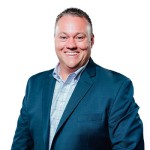 With a diverse background spanning multiple industries and several decades, Dave excels in Operational Management, Sales, and Marketing. His ability to streamline systems and create efficiency, while simultaneously increasing productivity and morale, has been recognized time and again by his peers.
With a diverse background spanning multiple industries and several decades, Dave excels in Operational Management, Sales, and Marketing. His ability to streamline systems and create efficiency, while simultaneously increasing productivity and morale, has been recognized time and again by his peers.
Running an online reputation management company that serves individuals, and small-midsize businesses as well as large corporate giants, Dave works closely with his team to provide a complete range of online public relations, brand management, SEO, legal, and digital marketing solutions. Reputation Rhino is made up of experts who work tirelessly to remove or suppress negative search results, improve business reviews or build your brand. Simply put, Reputation Rhino helps you look your best online.

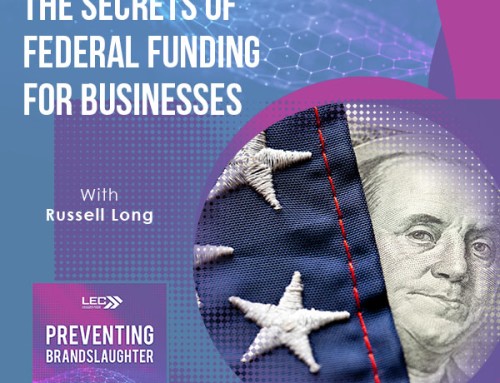
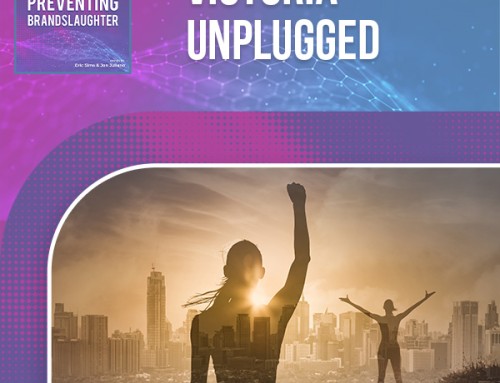
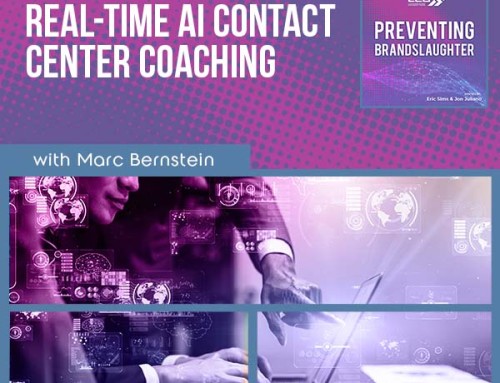
Leave A Comment